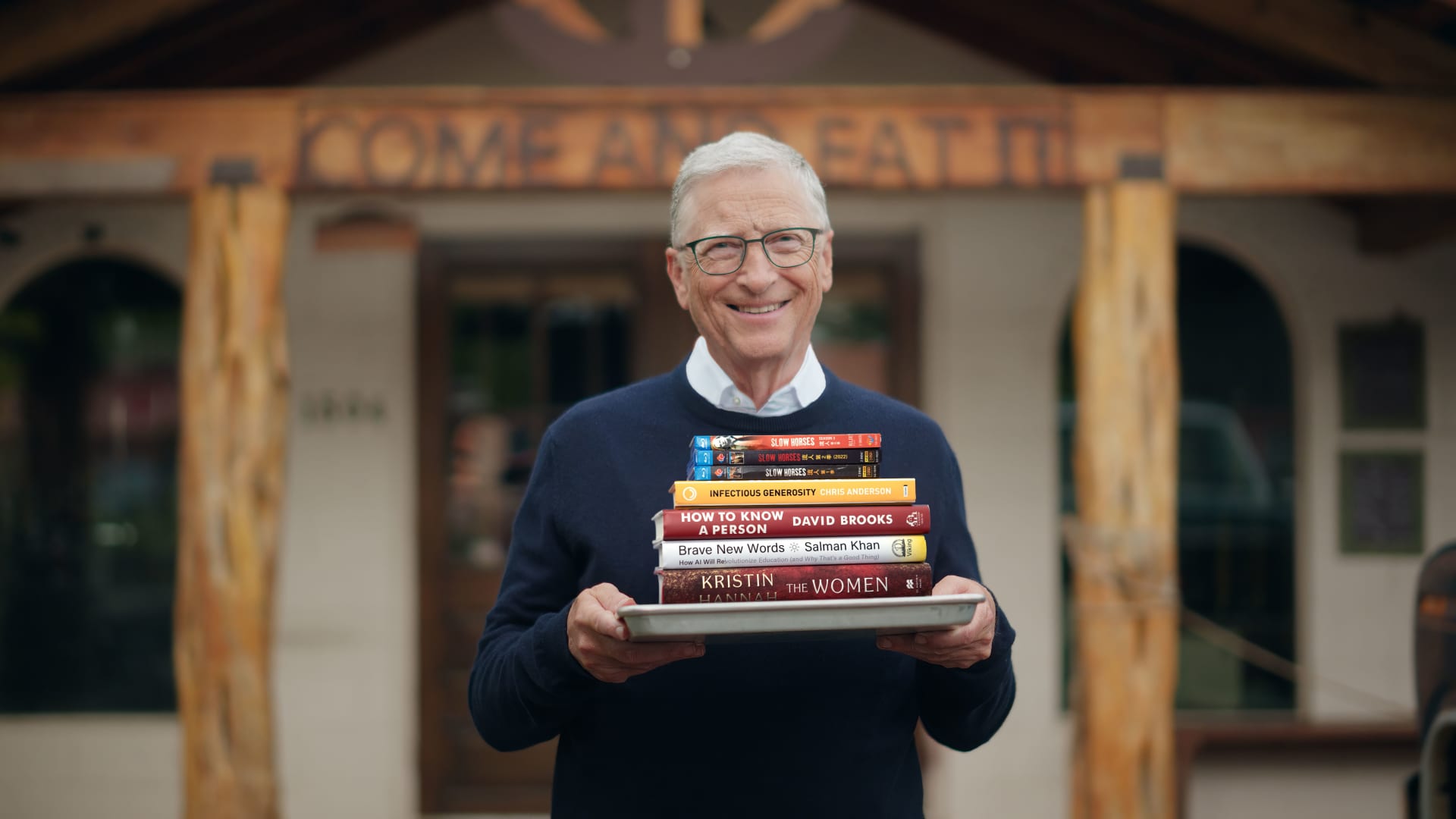Bill Gates recently released a list of book recommendations for the upcoming summer. He only referred to one of them as a “must read.”
That’s “How To Know A Person: The Art of Seeing Others Deeply and Being Deeply Seen,” written by New York Times op-ed columnist David Brooks and published in October 2023. In the book, Brooks offers research and tips for how to better communicate and connect with other people.
“More than a guide to better conversations, it’s a blueprint for a more connected and humane way of living,” Gates wrote on his blog last month. “It’s a must-read for anyone looking to deepen their relationships and broaden their perspectives.”
The book focuses on three themes, all of which can help you better understand the people around you, Brooks writes: curiosity, empathy and self-awareness.
The power of curiosity
Some people are better conversationalists than others. That’s because they’re better at taking interest in other people and giving them the floor to share their stories and perspectives authentically, Brooks writes.
He calls these kinds of people “illuminators.” The opposite: diminishers.
“Diminishers are not curious about you, they don’t ask you questions,” Brooks said during a discussion at Colgate University in February. “Illuminators, they make you feel lit up, they’re curious about you, they want to ask you questions.”
DON’T MISS: The ultimate guide to becoming a master communicator and public speaker
People often find it easier to open up to someone who takes a genuine interest in them, Brooks writes. They find a sense of comfort in being asked the right questions at the right time. But diminishers often ask questions that aren’t open-ended, or use your response as a way to talk about themselves.
Those observations have been “really helpful in my own life,” Gates wrote on his blog. He makes it a point to ask “open-ended questions—with phrases like ‘How did you…,’ ‘What’s it like…,’ ‘Tell me about…,’ and ‘In what ways…’—that invite people to share their experiences and perspectives in a more in-depth way.”
Empathy-building skills
Listening to other people is one thing. Understanding and relating to their anecdotes is another, and it can make your conversations more impactful.
“A person is a point of view. Every person you meet is a creative artist who takes the events of life and, over time, creates a very personal way of seeing the world,” Brooks writes, adding: “People need recognition from others if they are to thrive. People long for someone to look into their eyes with loving acceptance.”
Showing empathy can be easier said than done, so Brooks breaks it down into three separate skills.
“The first skill is mirroring, and that’s really like catching emotion,” he told the “Everything Happens” podcast in October 2023. “The second is mentalizing: I have a theory based on some past experience [about] what you’re feeling. And then the third is caring.”
The next time someone talks to you, especially about a sensitive subject, make a note of what they’re saying and doing. Mirror it back to them to show that you’re on the same page, with phrases like, “So what I’m hearing is…” or, “Are you saying that…?”
Then, try to provide some insight, Brooks writes — rounding out the conversation by letting them know you’re here for them.
‘What am I missing here?’
Brooks recommends getting comfortable with introspection and self-awareness. Being too stuck in your own viewpoint can make it difficult to see the perspectives of others, he explained in an October 2023 New York Times article.
“Whether I intend to or not, I walk into rooms carrying a lot of elite baggage,” he wrote. “I write for elite publications. I used to teach at Yale. People on the left and the right may see me embedded in systems that they feel disrespect them or keep them down.”
Instead of being argumentative or defensive, Brooks added, he challenges himself to ask: “What am I missing here?”
In the book, Brooks notes that building self-awareness on your own is hard. He suggests asking your friends, loved ones and colleagues how they view you, to help you identify your biases and reprogram the way you approach people.
“People trying to grapple with their adult legacies of their childhood wounds need friends who will prod them to see their situation accurately,” he writes. “They need friends who can provide the outside view of them, the one they can’t see from within.”
Want to be a successful, confident communicator? Take CNBC’s new online course Become an Effective Communicator: Master Public Speaking. We’ll teach you how to speak clearly and confidently, calm your nerves, what to say and not say, and body language techniques to make a great first impression. Sign up today and use code EARLYBIRD for an introductory discount of 30% off through July 10, 2024.
Plus, sign up for CNBC Make It’s newsletter to get tips and tricks for success at work, with money and in life.
Read the full article here






